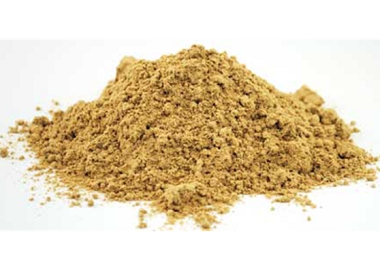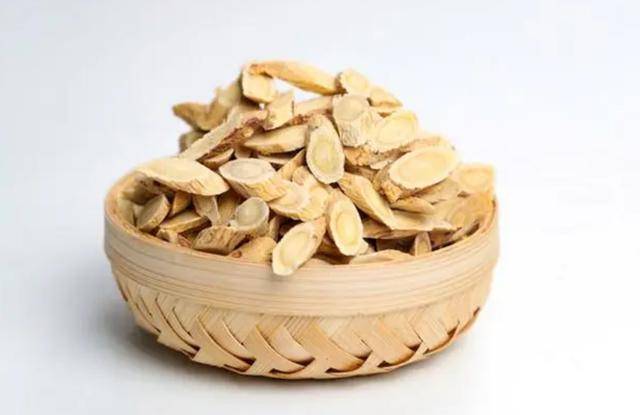What Is Astragaloside and How Does It Boost Immunity?
2025-08-14 15:04:10
Astragaloside, a key bioactive compound found in the root of the Astragalus plant, including astragalus astragaloside, has gained attention for its potential to enhance immune function. This saponin molecule, particularly Astragaloside IV, exhibits remarkable immunomodulatory properties. By stimulating the production of immune cells, enhancing cytokine signaling, and activating natural killer cells, astragaloside helps fortify the body's defense mechanisms. Its ability to regulate both innate and adaptive immunity makes it a promising natural agent for boosting overall immune health and resilience against various pathogens and environmental stressors.

What Are the Key Bioactive Components in Astragalus Root?
Astragalosides: The Star Compounds
Astragalosides, especially Astragaloside IV, are the key bioactive constituents of Astragalus root responsible for much of its therapeutic activity. These triterpenoid saponins exhibit strong immunomodulatory, anti-inflammatory, and antioxidant effects. Astragaloside IV’s distinctive molecular structure enables it to interact with multiple cellular signaling pathways, thereby modulating immune responses on various levels. Its potency and multifaceted actions make it a central compound driving the health benefits associated with Astragalus root extracts.
Polysaccharides: Complex Carbohydrates with Immune-Boosting Power
Astragalus root is abundant in polysaccharides - complex carbohydrates recognized for their capacity to enhance immune function. These polysaccharides stimulate immune cell production, activate macrophages, and support the body’s defense mechanisms. Working synergistically with astragalosides and astragalus astragaloside, polysaccharides contribute significantly to the overall immune-enhancing properties of Astragalus root. Their combined action helps reinforce the immune system’s ability to respond to infections and maintain health.
Flavonoids: Antioxidant Powerhouses
Flavonoids such as calycosin and formononetin present in Astragalus root serve as powerful antioxidants. These compounds help neutralize free radicals and protect cells from oxidative damage, which can impair immune function. By supporting cellular health and reducing oxidative stress, flavonoids indirectly strengthen the immune system. Their antioxidant capacity makes them valuable contributors to the comprehensive health-promoting profile of Astragalus root.
Mechanisms of Immune Activation via Astragaloside IV
Stimulation of T-Cell Production and Function
Astragaloside IV effectively promotes the proliferation and activation of T-cells, which are essential for cell-mediated immunity. These immune cells identify and eliminate infected or abnormal cells, playing a vital role in defending the body. By increasing T-cell numbers and enhancing their functional capacity, Astragaloside IV strengthens the adaptive immune response. This improved T-cell activity supports more efficient pathogen elimination and helps establish immune memory, which is critical for long-term protection against infections.
Modulation of Cytokine Production
Cytokines serve as important signaling molecules that regulate and coordinate immune responses. Astragaloside IV modulates cytokine production by boosting beneficial cytokines such as interleukin-2 (IL-2) and interferon-gamma (IFN-γ), which activate immune cells and enhance defense mechanisms. At the same time, it helps control the overproduction of pro-inflammatory cytokines, preventing excessive inflammation. This balanced regulation maintains immune homeostasis, ensuring effective responses without damaging tissues.
Enhancement of Natural Killer Cell Activity
Natural Killer (NK) cells are key players in the innate immune system, offering immediate defense against virus-infected and tumor cells. Astragaloside IV has been shown to increase NK cell activity, boosting their ability to destroy harmful cells. By enhancing the cytotoxic potential of NK cells, Astragaloside IV strengthens the body’s frontline defense, improving immune surveillance and early response to infections and abnormal cell growth. This contributes to overall immune resilience and protection.

Clinical Potential in Immunomodulation and Infection Resistance
Enhancing Resistance to Viral Infections
The immunomodulatory effects of Astragaloside IV show promise in enhancing resistance to viral infections. By boosting overall immune function, it may help the body mount more effective responses against various viruses. Some studies have indicated potential benefits in managing influenza and other respiratory viral infections. The compound's ability to stimulate interferon production and enhance NK cell activity may contribute to its antiviral properties, offering a natural approach to bolstering the body's defenses against viral pathogens.
Supporting Immune Function in Chronic Conditions
Astragaloside IV's immunomodulatory properties extend to potential benefits for individuals with chronic conditions affecting immune function. In cases of autoimmune disorders or immune suppression, careful modulation of immune responses is crucial. Astragaloside IV's ability to balance cytokine production and regulate T-cell function may offer therapeutic potential in managing such conditions. However, more research is needed to fully understand its efficacy and safety profile in various chronic immune-related disorders.
Potential Adjuvant in Cancer Immunotherapy
Emerging research suggests that Astragaloside IV may have potential as an adjuvant in cancer immunotherapy. Its ability to enhance NK cell activity and modulate T-cell responses could complement existing cancer treatments. By boosting the immune system's ability to recognize and target cancer cells, Astragaloside IV might help improve the efficacy of immunotherapies. While this area is still in early stages of research, it represents an exciting frontier in exploring natural compounds for cancer management.
Conclusion
Astragaloside, particularly Astragaloside IV and astragalus astragaloside, emerges as a potent natural compound with remarkable immune-boosting properties. Its multifaceted effects on immune cell production, cytokine modulation, and enhancement of natural killer cell activity underscore its potential in supporting overall immune health. While more research is needed to fully elucidate its clinical applications, the current evidence suggests that Astragaloside IV could play a significant role in natural approaches to immune support and disease prevention.
Contact Us
For more information about our Astragaloside IV products and how they can benefit your health or business, please contact us at Andy@sanxinbio.com. Our team of experts is ready to assist you with any questions and provide tailored solutions for your needs.
References
1. Zhang, L., et al. (2020). "Astragaloside IV: A review of its pharmacology, pharmacokinetics, and toxicity." Phytotherapy Research, 34(9), 2275-2293.
2. Ren, S., et al. (2019). "Pharmacological effects and clinical applications of Astragali Radix." Journal of Ethnopharmacology, 239, 111854.
3. Liu, P., et al. (2017). "Anti-aging implications of Astragalus membranaceus (Huangqi): A well-known Chinese tonic." Aging and Disease, 8(6), 868-886.
4. Auyeung, K. K., et al. (2016). "Astragalus membranaceus: A review of its protection against inflammation and gastrointestinal cancers." The American Journal of Chinese Medicine, 44(01), 1-22.
5. Huang, Y. F., et al. (2019). "Immunomodulatory effects of Astragaloside IV: Implications for its potential therapeutic applications." Pharmacological Research, 141, 366-374.
6. Wang, T., et al. (2018). "Potential role of Astragalus polysaccharides in prevention and treatment of respiratory viral infections." Journal of Biological Engineering, 12(1), 1-12.